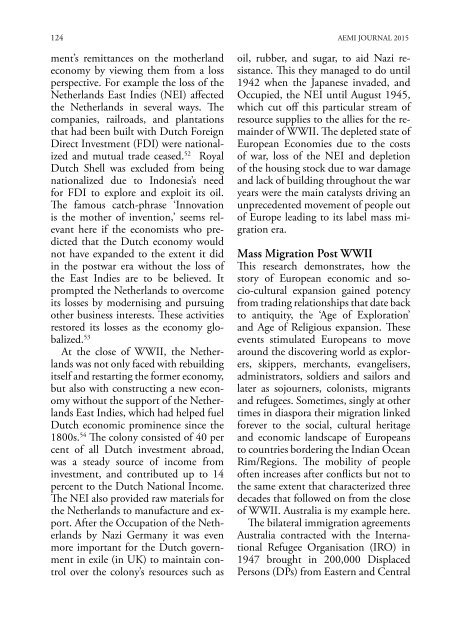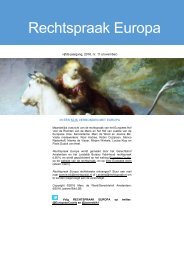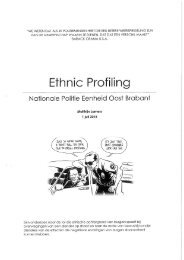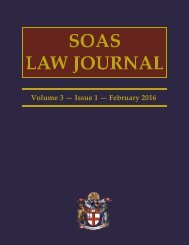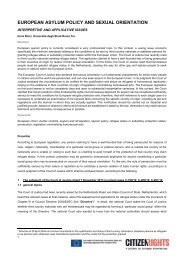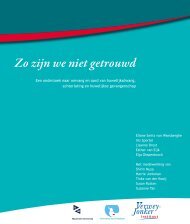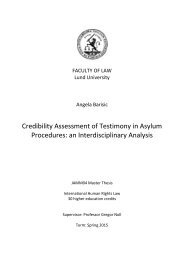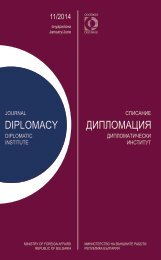AEMI
AEMI-2016-web
AEMI-2016-web
You also want an ePaper? Increase the reach of your titles
YUMPU automatically turns print PDFs into web optimized ePapers that Google loves.
124 <strong>AEMI</strong> JOURNAL 2015<br />
ment’s remittances on the motherland<br />
economy by viewing them from a loss<br />
perspective. For example the loss of the<br />
Netherlands East Indies (NEI) affected<br />
the Netherlands in several ways. The<br />
companies, railroads, and plantations<br />
that had been built with Dutch Foreign<br />
Direct Investment (FDI) were nationalized<br />
and mutual trade ceased. 52 Royal<br />
Dutch Shell was excluded from being<br />
nationalized due to Indonesia’s need<br />
for FDI to explore and exploit its oil.<br />
The famous catch-phrase ‘Innovation<br />
is the mother of invention,’ seems relevant<br />
here if the economists who predicted<br />
that the Dutch economy would<br />
not have expanded to the extent it did<br />
in the postwar era without the loss of<br />
the East Indies are to be believed. It<br />
prompted the Netherlands to overcome<br />
its losses by modernising and pursuing<br />
other business interests. These activities<br />
restored its losses as the economy globalized.<br />
53<br />
At the close of WWII, the Netherlands<br />
was not only faced with rebuilding<br />
itself and restarting the former economy,<br />
but also with constructing a new economy<br />
without the support of the Netherlands<br />
East Indies, which had helped fuel<br />
Dutch economic prominence since the<br />
1800s. 54 The colony consisted of 40 per<br />
cent of all Dutch investment abroad,<br />
was a steady source of income from<br />
investment, and contributed up to 14<br />
percent to the Dutch National Income.<br />
The NEI also provided raw materials for<br />
the Netherlands to manufacture and export.<br />
After the Occupation of the Netherlands<br />
by Nazi Germany it was even<br />
more important for the Dutch government<br />
in exile (in UK) to maintain control<br />
over the colony’s resources such as<br />
oil, rubber, and sugar, to aid Nazi resistance.<br />
This they managed to do until<br />
1942 when the Japanese invaded, and<br />
Occupied, the NEI until August 1945,<br />
which cut off this particular stream of<br />
resource supplies to the allies for the remainder<br />
of WWII. The depleted state of<br />
European Economies due to the costs<br />
of war, loss of the NEI and depletion<br />
of the housing stock due to war damage<br />
and lack of building throughout the war<br />
years were the main catalysts driving an<br />
unprecedented movement of people out<br />
of Europe leading to its label mass migration<br />
era.<br />
Mass Migration Post WWII<br />
This research demonstrates, how the<br />
story of European economic and socio-cultural<br />
expansion gained potency<br />
from trading relationships that date back<br />
to antiquity, the ‘Age of Exploration’<br />
and Age of Religious expansion. These<br />
events stimulated Europeans to move<br />
around the discovering world as explorers,<br />
skippers, merchants, evangelisers,<br />
administrators, soldiers and sailors and<br />
later as sojourners, colonists, migrants<br />
and refugees. Sometimes, singly at other<br />
times in diaspora their migration linked<br />
forever to the social, cultural heritage<br />
and economic landscape of Europeans<br />
to countries bordering the Indian Ocean<br />
Rim/Regions. The mobility of people<br />
often increases after conflicts but not to<br />
the same extent that characterized three<br />
decades that followed on from the close<br />
of WWII. Australia is my example here.<br />
The bilateral immigration agreements<br />
Australia contracted with the International<br />
Refugee Organisation (IRO) in<br />
1947 brought in 200,000 Displaced<br />
Persons (DPs) from Eastern and Central


